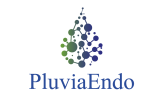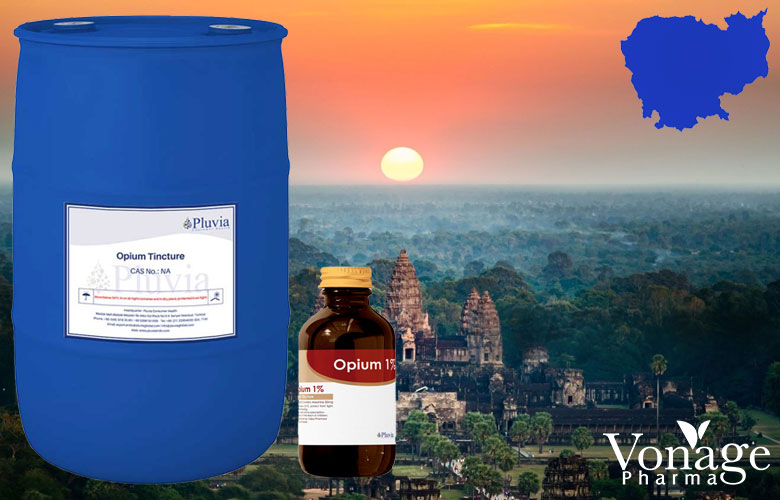Opium addiction remains a significant public health issue in Cambodia, where the prevalence of opium use has been a persistent challenge. In response, the Cambodian government has implemented compulsory treatment centers aimed at addressing drug dependency. However, the effectiveness of these centers in providing meaningful and lasting opium treatment is a topic of ongoing debate.
This blog post will evaluate the effectiveness of compulsory treatment centers for opium treatment in Cambodia, considering various factors such as relapse rates, treatment methodologies, and the role of pharmaceutical manufacturers like Pluvia Endo in providing necessary medications.
The Landscape of Opium Use in Cambodia
Cambodia has seen a troubling rise in opium use over the past decade. According to the United Nations Office on Drugs and Crime (UNODC), approximately 0.5% of the adult population in Cambodia is estimated to use opiates, with opium being one of the most commonly abused substances. This statistic underscores the urgent need for effective treatment options. The Cambodian government has responded by establishing compulsory treatment centers that detain individuals for rehabilitation.
Understanding Compulsory Treatment Centers
Compulsory treatment centers are facilities where individuals with substance use disorders are mandated to undergo treatment, often without their consent. In Cambodia, these centers have been criticized for their punitive approach rather than focusing on rehabilitation. The UNODC and other organizations have highlighted that such facilities often lack evidence-based practices and can lead to high relapse rates post-release.
Statistics on Relapse Rates
Research indicates that individuals released from compulsory treatment centers experience high rates of relapse. A study examining opioid-dependent individuals in Malaysia found that those released from mandatory drug detention centers had six times higher chances of relapsing compared to those discharged from voluntary drug treatment facilities (VTCs). Although specific statistics for Cambodia are limited, similar trends can be anticipated given the structure and practices observed in these centers.
The Role of Evidence-Based Treatment
The effectiveness of opium treatment is significantly enhanced when evidence-based practices are employed. In contrast to compulsory detention methods, community-based approaches that incorporate pharmacological interventions such as methadone maintenance therapy and buprenorphine have shown promising results in treating opioid dependence.
In Cambodia, initiatives supported by organizations like WHO and UNODC have begun to shift towards more humane and effective treatment models. For instance, community-based drug treatment programs that include methadone maintenance therapy have demonstrated better outcomes compared to compulsory detention.
The Importance of Community-Based Approaches
Community-based approaches not only provide medical assistance but also address social factors contributing to addiction. Programs that connect individuals with local support networks and resources can lead to more sustainable recovery outcomes. For instance, community organizations play a crucial role in facilitating access to methadone clinics and providing psychosocial support.
The Role of Pluvia Endo in Opium Treatment
As a leading pharmaceutical manufacturer based in Istanbul, Turkey, Pluvia Endo specializes in producing high-quality pharmaceutical products, including Opium Tincture 1% API, Opium Tincture 1% bottle, and Opium Powder API. Healthcare providers consider these products essential for effective opium treatment strategies, particularly in community-based settings where they implement medically assisted treatments.
Pluvia Endo’s commitment to quality ensures that healthcare providers have access to reliable formulations necessary for treating opioid dependence. The availability of such medications is critical as Cambodia transitions towards more effective treatment modalities.
Challenges Facing Compulsory Opium Treatment Centers
Despite the potential benefits of compulsory treatment centers, several challenges hinder their effectiveness:
- Lack of Evidence-Based Practices: Many centers do not utilize scientifically validated treatments for opioid dependence.
- High Relapse Rates: As previously mentioned, individuals often relapse shortly after release due to inadequate follow-up support.
- Human Rights Concerns: The punitive nature of compulsory treatment raises ethical issues regarding human rights violations.
- Stigmatization: Individuals who undergo compulsory treatment may face societal stigma, making reintegration into society more difficult.
Moving Towards Effective Opium Treatment Solutions
To improve opium treatment outcomes in Cambodia, it is essential to shift focus from compulsory detention towards voluntary and evidence-based treatment options. This includes:
- Expanding access to community-based drug treatment programs.
- Increasing the availability of medications like methadone and buprenorphine.
- Enhancing training for healthcare providers on best practices for treating opioid dependence.
- Implementing comprehensive follow-up care post-treatment to reduce relapse rates.
Conclusion
The evaluation of compulsory treatment centers for opium treatment in Cambodia reveals significant shortcomings that hinder their effectiveness. High relapse rates and a lack of evidence-based practices suggest that these centers may not be the best solution for addressing opioid dependence. Instead, a transition towards community-based approaches incorporating pharmacological treatments and psychosocial support is necessary.
Pharmaceutical manufacturers like Pluvia Endo play a critical role in this transition by providing essential medications needed for effective opium treatment strategies. By prioritizing humane and evidence-based interventions, Cambodia can improve its response to the growing challenge of opium addiction. This approach will help foster healthier communities.
In conclusion, the Cambodian government has established compulsory treatment centers as a response to opium addiction. However, their effectiveness remains questionable. A comprehensive approach that includes community support and access to quality medications is vital for healthcare providers. This strategy aims to achieve lasting recovery outcomes for individuals struggling with opioid dependence.







